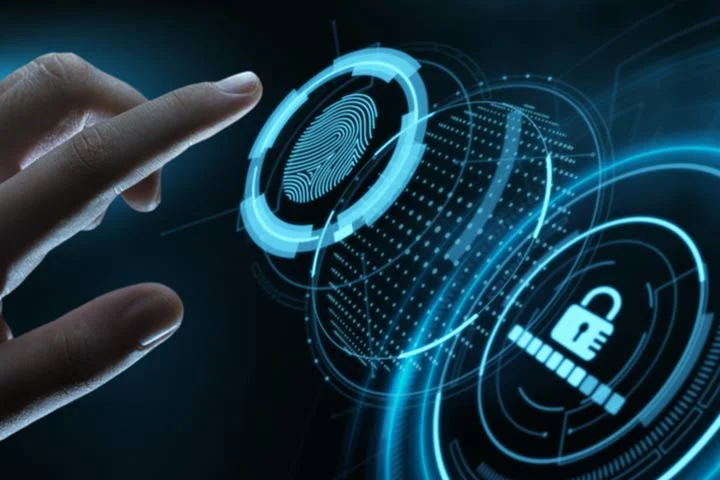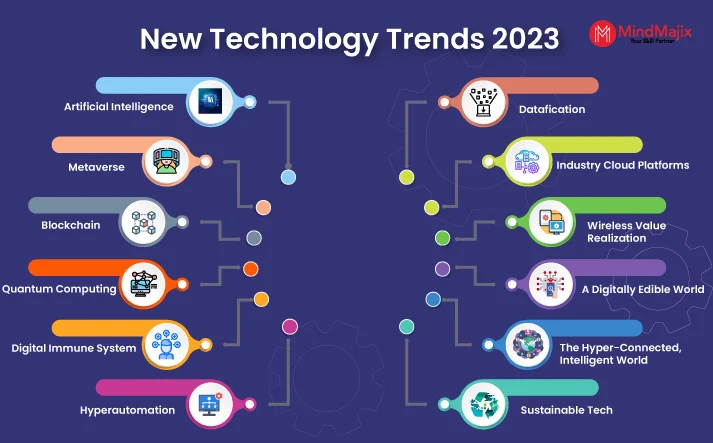Why are Biometric Security Systems Important? Biometric security systems are important because they provide a highly secure and reliable way to verify an individual’s identity. By using unique physical characteristics such as fingerprints, iris patterns, or facial features, biometric systems can accurately authenticate an individual, making it extremely difficult for unauthorized access. This level of security is crucial for protecting sensitive information, preventing identity theft, and ensuring the safety and security of individuals and organizations. Additionally, biometric security systems offer convenience and efficiency, as they eliminate the need for passwords or access cards, and can be seamlessly integrated into various devices and applications.
Biometric security systems play a vital role in enhancing security measures across various industries, including finance, healthcare, and government sectors. The use of biometric technology can effectively combat identity theft, fraud, and unauthorized access, ultimately safeguarding sensitive information and resources. Furthermore, biometric systems offer a user-friendly and seamless authentication process, enhancing the overall user experience and reducing the risk of security breaches. With advancements in biometric technology, such as the development of more accurate and reliable biometric sensors, the potential for widespread adoption of biometric security systems continues to grow, further solidifying their importance in today’s digital world.
Enhanced Security
Biometric security systems provide enhanced security by using unique physical characteristics such as fingerprints, iris patterns, or facial features to verify a person’s identity. Unlike traditional security measures like passwords or access cards, biometric data cannot be easily duplicated or stolen, making it much more difficult for unauthorized individuals to gain access to secure areas or sensitive information.
These systems also offer a higher level of accuracy in verifying a person’s identity, reducing the risk of false positives or unauthorized access. This enhanced security is particularly important in high-security environments such as government facilities, financial institutions, and healthcare facilities where protecting sensitive data and assets is critical.
Convenience and Efficiency
Biometric security systems offer convenience and efficiency by eliminating the need for individuals to carry access cards or remember complex passwords. This not only streamlines the authentication process but also reduces the risk of unauthorized access due to lost or stolen credentials. Additionally, biometric authentication is often quicker and more seamless than traditional methods, allowing for faster and more efficient access to secure areas or devices.
From a user perspective, biometric systems also offer convenience by eliminating the need to repeatedly enter passwords or carry physical access cards. This can lead to a more positive user experience and increased productivity as individuals can quickly and easily access the resources they need without the hassle of traditional authentication methods.
Prevention of Identity Theft and Fraud
Biometric security systems play a crucial role in preventing identity theft and fraud by providing a highly secure method of verifying an individual’s identity. Unlike passwords or PIN codes, which can be easily stolen or hacked, biometric data is unique to each individual and cannot be easily replicated. This makes it much more difficult for fraudsters to impersonate someone else or gain unauthorized access to sensitive information.
By implementing biometric security measures, organizations can significantly reduce the risk of identity theft and fraud, protecting both their own assets and the personal information of their customers or employees. This is particularly important in industries such as banking, healthcare, and e-commerce where the risk of identity theft and fraud is high.
Accuracy and Reliability
Biometric security systems are known for their high level of accuracy and reliability in verifying an individual’s identity. Unlike traditional methods such as passwords or access cards, which can be shared or stolen, biometric data is unique to each individual and cannot be easily replicated or forged. This ensures that only authorized individuals are granted access to secure areas or sensitive information.
Additionally, biometric authentication methods such as fingerprint or iris scanning have a very low false acceptance rate, meaning that the chances of an unauthorized individual being mistakenly granted access are extremely low. This high level of accuracy and reliability makes biometric security systems a valuable tool for organizations looking to enhance their security measures.
Regulatory Compliance
Biometric security systems play a key role in helping organizations comply with regulatory requirements related to data security and privacy. Many industries, such as healthcare and finance, are subject to strict regulations governing the protection of sensitive personal information. By implementing biometric authentication measures, organizations can demonstrate a strong commitment to protecting the privacy and security of this data.
Furthermore, some regulations require organizations to implement specific security measures, such as two-factor authentication, to protect sensitive information. Biometric security systems can help organizations meet these requirements by providing a highly secure and reliable method of verifying an individual’s identity, thereby ensuring compliance with relevant regulations.
Reduced Risk of Unauthorized Access
Biometric security systems help reduce the risk of unauthorized access to secure areas or sensitive information by providing a highly secure method of verifying an individual’s identity. Unlike traditional security measures such as passwords or access cards, which can be shared or stolen, biometric data is unique to each individual and cannot be easily replicated or forged.
By implementing biometric authentication measures, organizations can significantly reduce the risk of unauthorized individuals gaining access to secure areas or sensitive information, thereby enhancing overall security and minimizing the potential for security breaches or data leaks.
Integration with Existing Systems
Biometric security systems can be seamlessly integrated with existing security infrastructure, making it easy for organizations to enhance their security measures without requiring a complete overhaul of their current systems. Many biometric systems are designed to be compatible with a wide range of access control and authentication systems, allowing for a smooth and efficient integration process.
This integration capability makes it easy for organizations to adopt biometric security measures without disrupting their existing operations, and can also allow for a phased implementation approach, where biometric authentication is gradually introduced across different areas of the organization.
Employee Accountability
Biometric security systems can help organizations ensure employee accountability by accurately tracking and recording employee access to secure areas or sensitive information. By using biometric data to verify an individual’s identity, organizations can create a detailed audit trail of who accessed specific resources and when, providing valuable insights into employee activity and potential security breaches.
This level of accountability can be particularly important in industries where regulatory compliance and data security are critical, as it allows organizations to demonstrate a strong commitment to protecting sensitive information and ensuring that only authorized individuals have access to it.
Enhanced User Experience
Biometric security systems can enhance the user experience by providing a more seamless and convenient method of authentication. By eliminating the need for individuals to remember complex passwords or carry access cards, biometric systems can streamline the authentication process and make it easier for users to access the resources they need.
Additionally, biometric authentication methods are often quicker and more user-friendly than traditional methods, leading to a more positive user experience and increased productivity. This can be particularly beneficial in environments where individuals need to frequently access secure areas or devices as part of their daily activities.
Future-Proof Security Measures
Biometric security systems offer future-proof security measures by providing a highly secure and reliable method of authentication that is not easily susceptible to hacking or fraud. Unlike traditional security measures such as passwords or access cards, which can be vulnerable to technological advancements and hacking techniques, biometric data is unique to each individual and cannot be easily replicated or forged.
By implementing biometric security measures, organizations can ensure that their security measures remain effective and reliable in the face of evolving security threats and technological advancements, providing long-term protection for their assets and sensitive information.
Why are Biometric Security Systems Important?
| Reasons | Explanation |
|---|---|
| Enhanced Security | Biometric systems provide a higher level of security compared to traditional methods like passwords or ID cards. |
| Uniqueness | Biometric identifiers such as fingerprints or iris patterns are unique to each individual, making it difficult for unauthorized access. |
| Convenience | Biometric systems eliminate the need for remembering passwords or carrying physical keys, providing convenience for users. |
| Accuracy | Biometric authentication is highly accurate and reduces the risk of false positives or unauthorized access. |
| Prevention of Fraud | Biometric systems help in preventing identity fraud and unauthorized use of personal information. |
conclusıon
Biometric security systems are important for enhancing security, providing uniqueness, convenience, accuracy, and preventing fraud.




